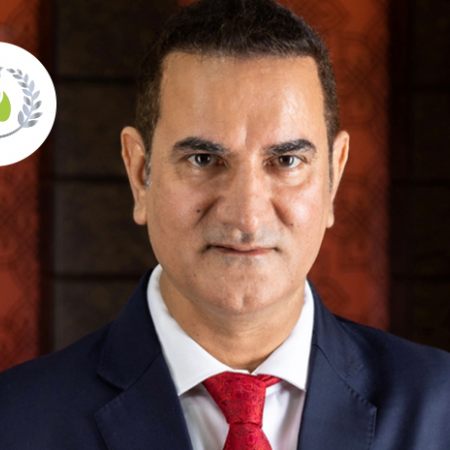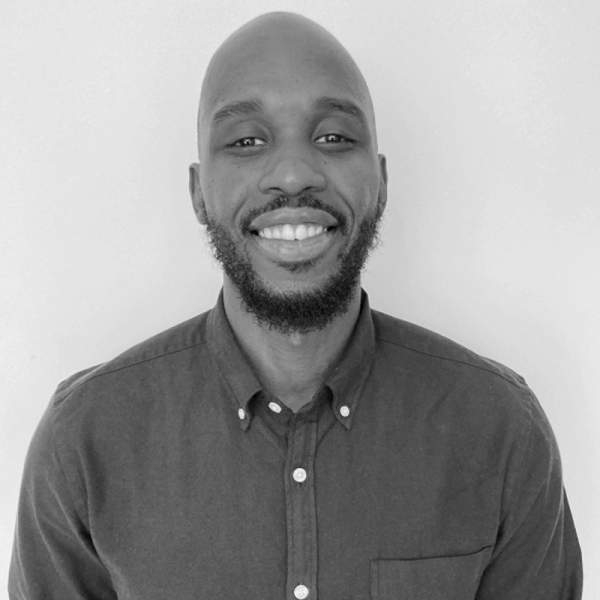March 30, 2022
Arab India Spices is one the world’s largest pulses processors. Based in Ajman (UAE), the company exports to over 56 countries around the world and has been at the vanguard of the pulses sector in the Middle East since 1986. Jesse Sam spoke to Harish Tahiliani, Group MD, about his leadership of the company and its current operations.


My story with Arab India Spices and the pulses sector start at the same point. A phone call from my father, nearly thirty years ago. By then, the company had been trading for nearly a decade. My father started Arab India Spices in 1986, primarily as a spices trader. He saw the immense potential of the food industry in the Middle East and in 1990 he expanded into pulses, establishing the first ever processing plant in the UAE, in Sharjah.
By 1994, he wanted the business to grow more quickly. I was already helping from Gujarat (western India), but he believed that my future was here in the UAE, working with him to continue the family tradition of spices manufacturing and trading which was started by my grandfather in 1947. So in 1994 I moved to Sharjah permanently and that’s when I really got involved with the company.
It was a great education. As I said, we were the first ones to start processing pulses in the UAE. We started with just two splitting lines of desi chickpeas and red lentils. We stayed at that location in Sharjah from 1990 until 2006. In that time, we expanded to six lines; we went from producing 40 tons per day to around 150 tons.
We faced a lot of hurdles along the way but we overcame them. In 2006, we had the opportunity to set up an approximately 400,000 square feet facility — ten times the size of our previous site — in Ajman. Apart from the increased capacity, what really motivated us to move was the opportunity to own the facility outright with our family name; that was a huge point of pride for us.
By 2011, we had increased our production to 325 tons per day across eight lines. And that year, we were awarded by the Dubai Chamber of Commerce as the SME (small medium enterprise) with the highest volume of exports.
Today, we have 19 lines and our production is around 800 tons per day.
Red split lentils are the single most important pulses product for our company. The other is chana dal.
Definitely the GCC countries; we are extremely strong in the UAE. But we also export further afield, to nearly 56 countries, from Djibouti and Ethiopia in east Africa to Jordan and Iraq and all the way out to Europe.
For me, the most important things are quality, consistency and customer satisfaction.
Well, quality is an obvious thing to strive for, especially in our business. But we really take it seriously; I take it very seriously.
That starts with our production partners. We know exactly who to go to in Australia or Canada if we want different specifications on purity or other product characteristics. And then we take Quality Control extremely seriously here at our processing facilities. I prefer to be present where the processing takes place, which is in Ajman, so I can personally review samples four times a day. I could be in Dubai — which is a fantastic city — but I love being close to our production lines. I love seeing our warehouses in action; solving problems quickly; and ensuring the highest possible standards.
For me, it’s about passion and personal pride. I am passionate about satisfying our customers with the highest quality products. When I meet our customers, I always ask them ‘Are you happy with our products?’ The happiness I see on their face when they answer, that’s what fulfils me. Not money.
Consistency is about delivering for our customers no matter what. At all times, we have sufficient quantities in stock to meet our customer’s needs. We always promise to supply them. Regardless of quantity, price fluctuations, storage or logistics costs: we deliver.
We have invested in building our own capacity so we are more self-sufficient. We have around 100 vehicles, which can move throughout the region to transport raw materials or processed goods. We also have a warehouse facility in Oman, which gives us more flexibility.
At the end of the day, we are all humans. If God has given something to you, I believe you should return it back to the community, especially those who are most fortunate. Supplying food was something I could do to help those most in need, so it’s what we did and we were proud to be a part of it.
Yes, this is something we are also really proud of. We built the silos with 52,000 tons of storage capacity. It was a big decision for us and we encountered a lot of doubts; people thought it was a risky decision. But a week after we started using the silos, the pandemic started and they proved their worth. For the first six months of the pandemic, it was that storage capacity that helped us supply the UAE and the entire Middle East, working closely with the government. We are proud that there was no shortage of our products in any of the outlets throughout the region.
And the extra capacity allows us to take advantage of new opportunities. When new markets open up — as we saw recently in Ethiopia, which faced supply disruptions due to an ongoing conflict in the country — we can step in.
I think the most important change we’ve seen is just the amazing connectivity of the UAE. When we first started, Dubai didn’t have major global logistics operators like DP World operating a global network of ports, or a top-tier international airline like Emirates. And the investment in the regional road network has opened-up so many more countries — it’s why we invested so heavily in our infrastructure and vehicle fleet. That connectivity is so important for our business.
The other thing is pro-business government policies. We feel really encouraged by the government and we are grateful to work in such a supportive environment for enterprise.
Well, first and foremost, we’re just excited to see people again roaming around without any restrictions. It’s been two years and we want to reconnect with everyone. It’s always great to have everyone in the same room, including suppliers and buyers. It gives us an opportunity to explain what we need and also learn what others are looking for. Interacting face-to-face is so much more fruitful than via phone call or video chat.
It’s a big milestone for GPC and for Dubai to hold the conference here, and the city is very ready to play host.
Disclaimer: The opinions or views expressed in this publication are those of the authors or quoted persons. They do not purport to reflect the opinions or views of the Global Pulse Confederation or its members.